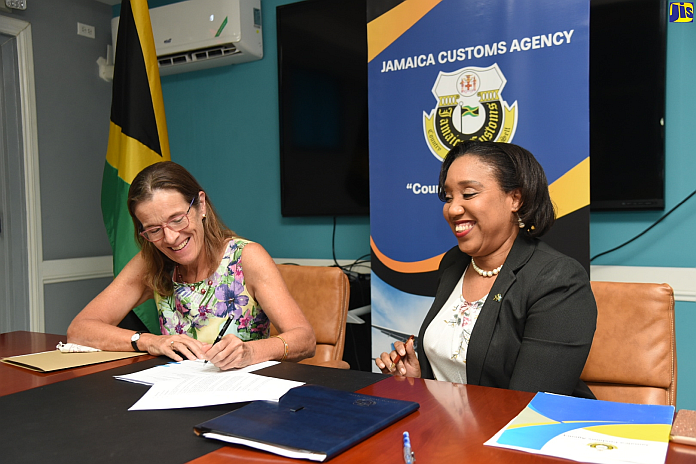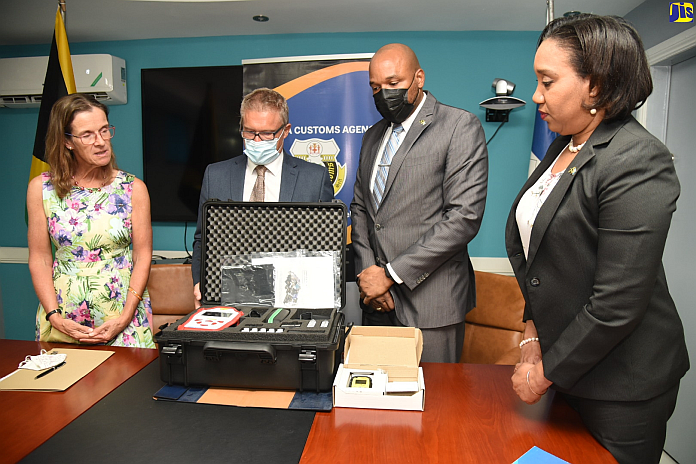By Douglas McIntosh
KINGSTON, Jamaica, (JIS) – The border protection capabilities of the Jamaica Customs Agency (JCA) have been significantly bolstered with the British government’s provision of a $22-million grant to acquire a replacement intelligence management system.
This system will boost the JCA’s intelligence and risk-based targeting framework, which is vital to tackling cross-border-related crimes.
The agency has also received radiation kits, among other provisions, which will aid in safeguarding officers against high-harm goods and other substances that they may encounter during their work. The grant is being facilitated through the British Home Office via United Kingdom Border Force International under a Memorandum of Understanding (MOU).

She said the acquisition of a new intelligence analysis database will also allow the JCA to pull on the treasure-trove of data stored in the entity’s Automated System for Customs Data, (ASYCUDA), combine that with other data sources “and provide a more complete picture as it relates to suspected bad actors, their associates, and their associations”.
The use of the intelligence management system, she also said, is a practical example of how customs agencies utilise technology and data effectively. She pointed out that as trade becomes more digitalised, the use of cross-border data is becoming increasingly important as part of the facilitation process and for enhancing capabilities.
“So, it, therefore, means that greater intelligence sharing, a cohesive response to threats, and strict law enforcement and cooperation of international partners are key to finally overtaking and defeating transnational crime,” the Commissioner added.
Noting that the JCA and UK Border Force share a long-standing relationship, Ricketts Walker said the agency anticipates continued collaboration.
This, she pointed out “as coordinated border management can only serve to provide greater results, as we seek to stamp out illicit trade and activities that threaten the viability of our society and economy”.
In her remarks, High Commissioner Slater, who noted that international crime “does not recognise national borders”, said the UK remains committed to working with Jamaica to combat the threat from smuggling of high-harm goods and substances in particular.
She said she also anticipated ongoing collaboration between the UK Border Force and JCA “over the coming years of my posting, [and] beyond that”.





